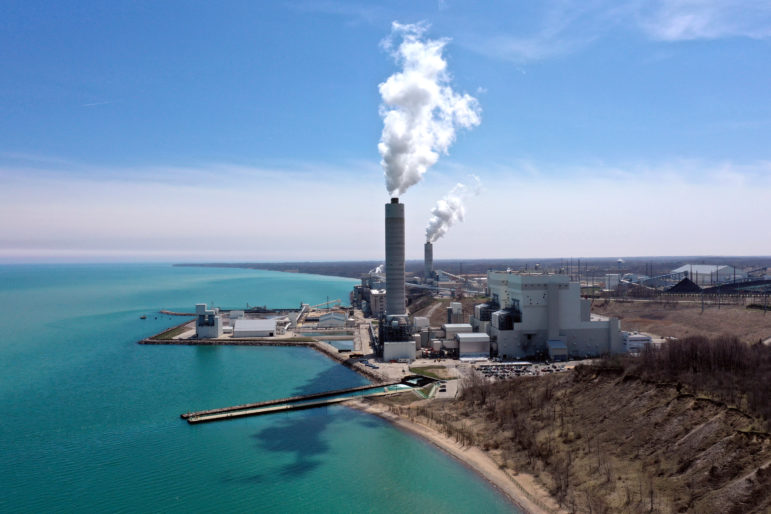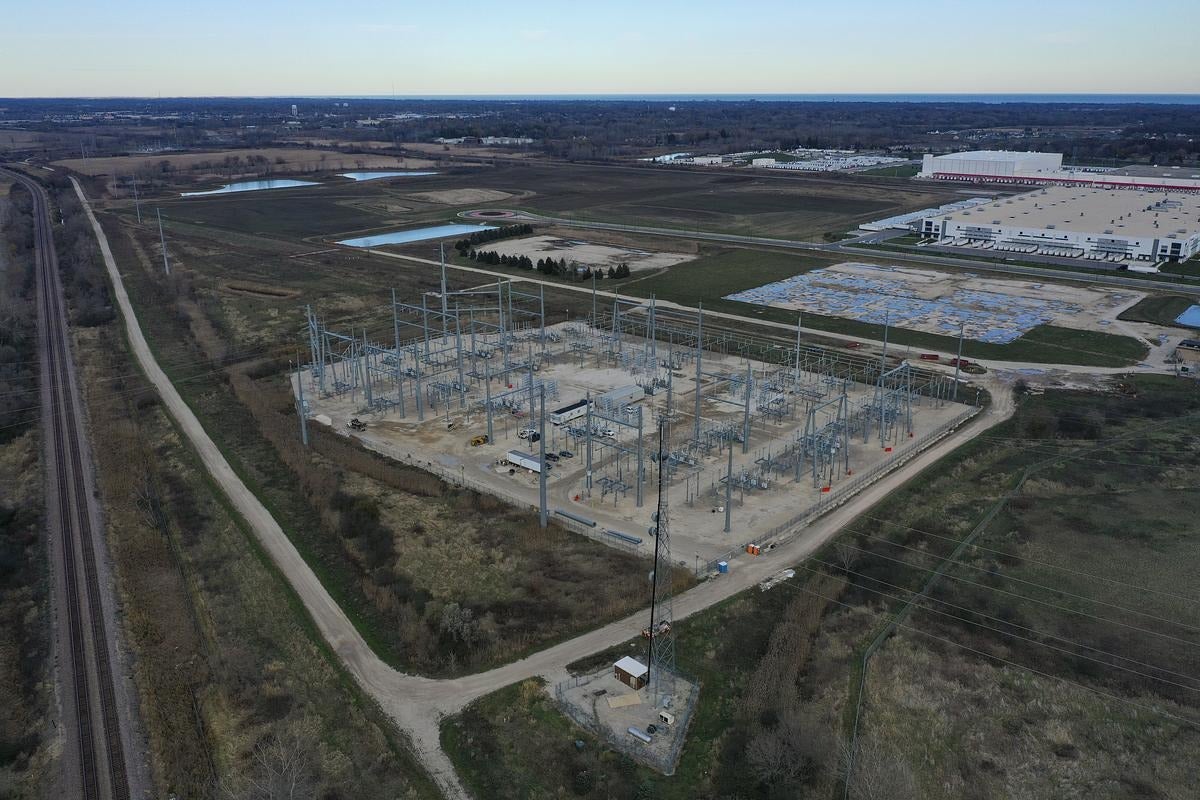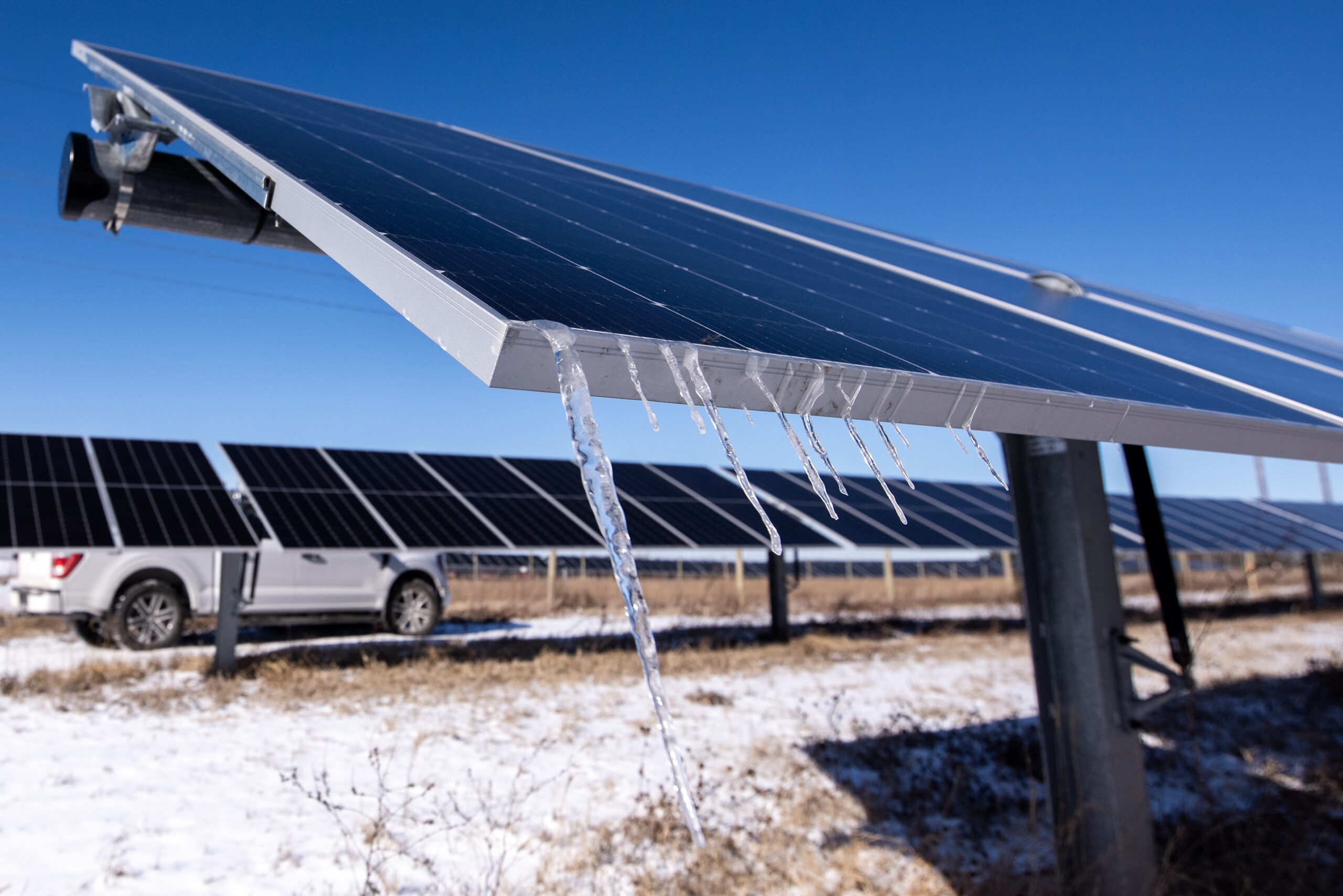We Energies didn’t rule out further delays to coal plant retirements during a recent earnings call, in which executives discussed new capacity requirements and Microsoft’s planned data center in Mount Pleasant.
Currently, the utility plans to shut down two units at the South Oak Creek coal plant in Milwaukee County by May 2024 and two more at the site by late 2025. We Energies also plans to end coal-fueled generation by 2035.
But there’s a chance those plans could change, as WEC Energy Group — the parent company of Wisconsin Public Service and We Energies — is working on its next five-year capital plan, which will cover 2024 through 2028.
News with a little more humanity
WPR’s “Wisconsin Today” newsletter keeps you connected to the state you love without feeling overwhelmed. No paywall. No agenda. No corporate filter.
During the company’s Aug. 1 earning’s call, WEC executives said Microsoft’s data center, a $1 billion development on land originally intended for Foxconn, is expected to factor into the company’s five-year plan.
Data centers are one of the most “energy-intensive” types of buildings, as they consume “10 to 50 times the energy per floor space of a typical commercial office building,” according to the U.S. Department of Energy. In fact, the country’s data centers account for around 2 percent of all U.S. electricity use.
“We need to make sure to support (Microsoft’s) energy needs and reliability,” WEC Energy Group Executive Chairman Gale Klappa said. “Would that investment be incremental to the plan? Absolutely incremental to the plan. There’s no question about that because it was not in our current five-year plan.”
Microsoft’s Mount Pleasant development will also include a new 26-acre electrical substation and power lines — built by We Energies and American Transmission Co. — to provide at least 752 megawatts of power, according to a document filed with the Wisconsin DNR. It will also link to an existing substation built for Foxconn’s initial plans for the campus.
“We’re working closely, in fact, on a weekly basis with Microsoft to determine the full extent of the energy infrastructure that will be needed to serve this development,” said Klappa. “We’re excited about supporting Microsoft as the company moves forward with a major technology investment.”
New seasonal capacity requirements for electricity production could also factor into the plan, executives said.
The Midcontinent Independent System Operator, or MISO, for years required utilities to meet a summer peak in electricity usage. In 2022, MISO received approval to start using a seasonal model to ensure utilities have adequate capacity for winter, spring, summer and fall.
With more solar generation than a decade ago, planning out how much power will be available to ensure a reliable grid has become more critical because solar farms aren’t as productive in the winter months.
“We believe it will have a particular effect on our winter capacity reserves,” Klappa said of MISO’s seasonal approach. “That’s all being factored into our new five-year capital plan.”
In response to issues discussed, one attendee posed a question during the earnings call about whether there could be further delays to coal plant retirements.
Klappa responded to the question saying, “we’re looking at all of that,” before turning to WEC Energy Group CEO Scott Lauber.
“We’re going through the planning process right now. We’re evaluating what our capacity needs are,” Lauber said. “Right now, nothing to announce. We’re just going through the analysis.”
Ciaran Gallagher, Energy & Air manager for Clean Wisconsin, said executives’ non-committal comments regarding coal plant retirements highlight that climate goals set by utilities are non-binding.
She said Wisconsin doesn’t have specific policy mechanisms at the state-level to regulate utilities’ five-year plans.
“We do not have something called ‘integrated resource planning,’ where the Public Service Commission of Wisconsin would be able to look ahead and approve their plans,” Gallagher said. “Instead, we regulate the utilities just on their specific rate cases and their construction cases. That has hampered the state’s ability to implement more binding constraints.”
She said the U.S. Environmental Protection Agency’s proposed power plant rules would help address the issue by setting emission limits and guidelines for carbon dioxide from fossil fuel-fired power plants.
Similarly, Jadine Sonoda, campaign coordinator for Sierra Club Wisconsin, said further delays to coal plant retirements would impact Wisconsinites in several ways, from hampering the state’s response to climate change to health impacts to people living near coal plants.
“We’re just seeing the impacts now of emissions that were put out years and years ago,” she said. “The more that they’re polluting now, the more intense these impacts are going to be in the future. We’ve already seen so many smoky, hazy days this summer, and it’s only going to get worse.”
In a statement, We Energies spokesperson Brendan Conway reiterated that the utility is still in the planning phase in determining future capacity needs. He said the changes MISO is making will have an effect on the utility’s winter capacity reserves.
“That’s all being factored into our new five-year capital plan, which we will announce later this year,” he said. “At this time, we do not have any announcements or changes to our schedule of planned coal plant retirements.”
Wisconsin Public Radio, © Copyright 2025, Board of Regents of the University of Wisconsin System and Wisconsin Educational Communications Board.






